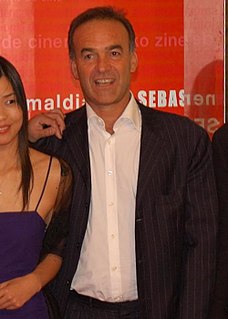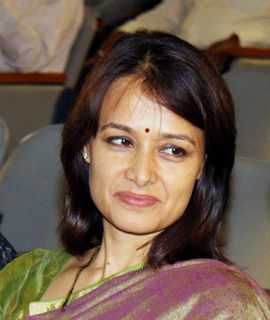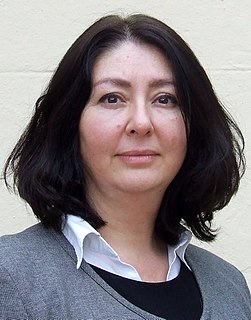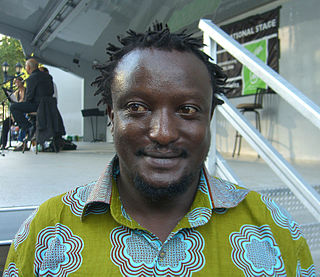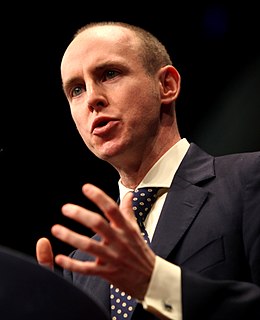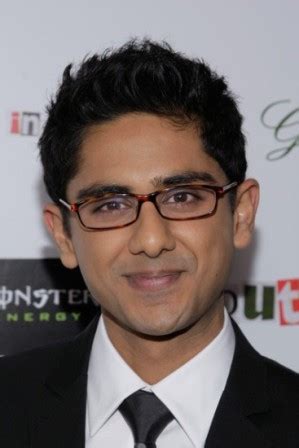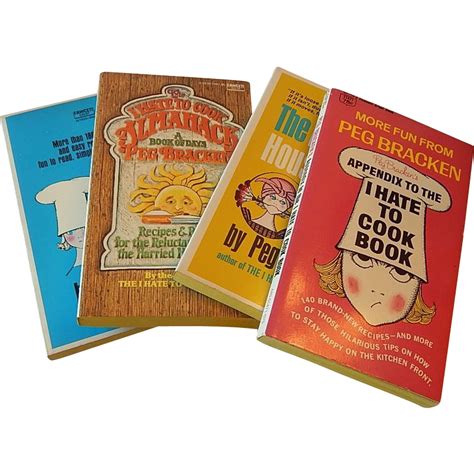Top 272 Apartheid Quotes & Sayings - Page 4
Explore popular Apartheid quotes.
Last updated on April 16, 2025.
The majority of South Africans, black and white, recognize that apartheid has no future. It has to be ended by our own decisive mass action in order to build peace and security. The mass campaign of defiance and other actions of our organization and people can only culminate in the establishment of democracy.
Harriet Washington, in 'Medical Apartheid: The Dark History of Medical Experimentation on Black Americans from Colonial Times to the Present,' documents the smallpox experiments Thomas Jefferson performed on his Monticello slaves. In fact, much of what we now think of as public health emerged from the slave system.
The United States imprisons a larger percentage of its black population than South Africa did at the height of apartheid. In Washington, D.C., our nation’s capitol, it is estimated that three out of four young black men (and nearly all those in the poorest neighborhoods) can expect to serve time in prison.
I remember being very affected by what was going on there towards the end of Apartheid. And the subject is still very pertinent, politically, to what's happening around the world today, in terms of negotiating peace talks. I had always been interested in this period of change in South Africa, generally, for a variety of reasons.
If I were able to write, I probably would. But movies have given me a part of my life where I can express feelings and bring convictions to an audience as if I could write. So I made 'Gandhi' about human relations, prejudice and the empire. In 'Cry Freedom' I expressed my horror and disgust about apartheid.
How do you deal with a criminal that will not listen to what you have to say and who continues his policy of violence? Some say you continue to talk and let him tire himself out. But nearly 40 years after the institution of apartheid, is there anyone who still believes that verbal persuasion will work?
I grew up in the American South, the segregated South. Now we have a black man who is president. It was an age of apartheid, and now that's over. It was an age of two superpowers frozen in a cold war, and now that's resolved. So history marches on, except for this Arab-Israel conflict, which seems to have a claim on being eternal.
Is Donald Trump a fascist? It's an interesting question that has generated insightful commentary over the past few months, with the best answers situating Trumpian illiberalism within America's long history of racial oppression, slavery, Jim Crow apartheid, and the ongoing backlash to the loss of white privilege.
When you go to the Holy Land and see what's being done to the Palestinians at checkpoints, for us, it's the kind of thing we experienced in South Africa. Whether you want to say Israel practices apartheid is immaterial. They are doing things, given their history, you think, "Do you remember what happened to you?" Then they clobber you and say, "You are anti-Semitic."
Nelson Mandela, Dada Vaswani, Harsh Mander, Shabana Azmi - I admire their humanitarian work. But sadly even Nelson Mandela could not keep corruption out of his cabinet and within a year, I am told, the victims of apartheid turned into perpetrators of corruption on their own people. Greed has no boundaries of colour or country does it?
The situation of women living in Islam-stricken
societies and under Islamic laws is the outrage
of the 21st century. Burqa-clad and veiled women
and girls, beheadings, stoning to death,
floggings, child sexual abuse in the name of
marriage and sexual apartheid are only the most
brutal and visible aspects of women's
rightlessness and third class citizen status in the Middle East
In South Africa, we could not have achieved our freedom and just peace without the help of people around the world, who through the use of non-violent means, such as boycotts and divestment, encouraged their governments and other corporate actors to reverse decades-long support for the Apartheid regime.
Mandela didn't end Apartheid in South Africa, the poor guy was in jail for 27 years, it was the African people that ended it but he was a symbol of their struggle. Or Gandhi in India, Gandhi was a great believer in non-violence and he was in and out of jail, but India became free. I think it's better to look at what people can do collectively and that's why it's so important to encourage them.
Of course I had the parallel of having the early years of my life being spent during apartheid, and then having a lot of awful poverty going on around me while I lived in this bubble of middle-classness, but I was a child, and I only really started to (I hope) understand all of that fairly recently.
I think we've become blind in this country to the ways in which we've managed to reinvent a caste-like system here in the United States, one that functions in a manner that is as oppressive, in many respects, as the one that existed in South Africa under apartheid and that existed under Jim Crow here in the United States.
All of my life had been spent in the shadow of apartheid. And when South Africa went through its extraordinary change in 1994, it was like having spent a lifetime in a boxing ring with an opponent and suddenly finding yourself in that boxing ring with nobody else and realising you've to take the gloves off and get out and reinvent yourself.
Disengagement is a response to certain demographic realities, .. Within a few years, due to the higher Arab birth rate, Jews will become a minority in the area between the Jordan River and the Mediterranean Sea. I don't want [Israel] to be South Africa because we don't believe in apartheid. We simply have to separate from the Palestinians so that we can control our own destinies.
When I went to live in South Africa, I immediately began to understand what went wrong. Because here was a place supposed to be under apartheid - I arrived there in 1991 - but here a black person had more say and had more influence over his white government than an average Kenyan had over the Moi government.
Legality alone is no guide for a moral people. There are many things in this world that have been, or are, legal but clearly immoral. Slavery was legal. Did that make it moral? South Africa’s apartheid, Nazi persecution of Jews, and Stalinist and Maoist purges were all legal, but did that make them moral?
All of my life had been spent in the shadow of apartheid. And when South Africa went through its extraordinary change in 1994, it was like having spent a lifetime in a boxing ring with an opponent and suddenly finding yourself in that boxing ring with nobody else and realising you've to take the gloves off and get out, and reinvent yourself.
Like slavery and apartheid, poverty is not natural. It is man-made and it can be overcome and eradicated by the actions of human beings. Overcoming poverty is not a gesture of charity. It is an act of justice... Sometimes it falls upon a generation to be great. You can be that great generation. Let your greatness blossom.
The Reformed Church was identified with the old all-white government of South Africa and its apartheid policy. The Roman Catholic Church was closely identified with the Franco and Salazar dictatorships in Spain and Portugal. . . . More recently, . . . the Serbian Orthodox Church has come to be identified with the policies of Serbia (Yugoslavia).
During the years I lived here, the people of Alexandra ignored tribal and ethnic distinctions. Instead of being Xhosas, or Sothos, or Zulus, or Shangaans, we were Alexandrans. We were one people, and we undermined the distinctions that the apartheid government tried so hard to impose. It saddens and angers me to see the rising hatred of foreigners.
There is in our society a gulf opening up, a kind of cultural apartheid, between those who are brought up to feel our national culture is theirs, to take ownership of it, and enjoy the privileges of that, and those who are completely disfranchised, those - for example - who will never be taken to the theatre to see Shakespeare.
We [ with Brian Mulroney and Rajiv Gandhi] went to the meeting in Canada [the 1987 Vancouver CHOGM] and I said to them there that sanctions weren't working; they were just being busted. And it did seem to me that one way that we could bring the apartheid regime down would be if we did mount an effective investment sanction.
Apartheid is a crime against humanity. Israel has deprived millions of Palestinians of their liberty and property. It has perpetuated a system of gross racial discrimination and inequality. It has systematically incarcerated and tortured thousands of Palestinians, contrary to the rules of international law. It has, in particular, waged a war against a civilian population, in particular children.
Already there exists a growing international concern that Israel has become "an apartheid state" pursuing policies manifesting a "settler colonial" mentality. Such perceptions pose a challenge to postcolonial international society that will not be indefinitely ignored, especially if Palestinians achieve greater unity and tactical focus.
Growing up in this post-apartheid era, the first generation of teens in South Africa living in this new democracy, I often found myself feeling different. I was often the only person of color in an otherwise all-white school. And within the Indian community, because of my training with an English acting teacher, my accent was very different.
When people say it's a funny thing about them, you will probably be able to control your hysterics. They are only getting ready to announce the shattering fact that they don't like something. And it's not going to be something that's really quite awful, like suttee or apartheid; it's going to be something small.


